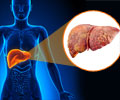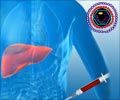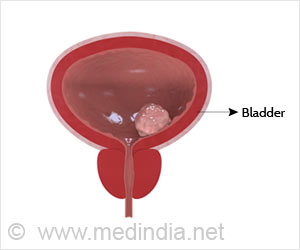World hepatitis day is observed to spread awareness about hepatitis. Dr. Ambrose Pradeep talks about hepatitis and the ‘Hepatitis Free Chennai 2022 campaign’.
- World Hepatitis Day is observed on 28thJuly every year to improve public awareness about the disease
- The WHO has started a campaign to eliminate hepatitis by 2030
- Dr. Ambrose Pradeep talks about ‘Hepatitis Free Chennai 2022’ campaign and more
World Hepatitis Day 2017 is observed to raise awareness about hepatitis, a group of infectious diseases that leads to an inflammation of the liver. There are five different types of hepatitis - hepatitis A, B, C, D and E, which affect millions worldwide. Hepatitis results in the death of nearly 1.4 million people all over the world. The World Health Organization has marked World Hepatitis Day as one of the Global Health Campaigns. The World Hepatitis Day is aimed at lowering the global burden of disease and to bring about improvement in the diagnosis and treatment of the disease.
Objectives of World Hepatitis Day 2017
- Increasing awareness about the disease
- Improving screening, prevention and control of viral hepatitis
- Widening the reach of hepatitis B vaccine
- Generating global support for hepatitis
The 69th World Health Assembly was held at Geneva in 2016, where 194 countries accepted the WHO’s Global Strategy on Viral Hepatitis.
- Eliminating Hepatitis B and C within the next 13 years
- NoHep is a global movement that is focused on eliminating Hepatitis by 2030
WHO’s Key Message for World Hepatitis Day 2017
- Viral Hepatitis is a global health problem
- In middle and low income countries, only a few patients have access to care and treatment
- Viral hepatitis led to 1.34 million deaths in the year 2015
- There is continued occurrence of new infections
Symptoms of hepatitis:
Important symptoms of hepatitis include:
- Nausea
- Dark colored urine
- Stomach pain
- Loss of appetite
- Yellowing of eyes and skin, jaundice
Some forms of hepatitis are mild while others can be serious and can lead to liver cirrhosis or liver cancer.
Improvements in Treatment:
Over the past few years there have been significant strides in the treatment measures for hepatitis. For example, for Hepatitis C viral infections, weekly injections of interferon were required along with ribavarin injections taken daily for 24 to 48 weeks. The side effects for these drugs ranged from depression to suicidal tendencies. However, current treatment strategies involve oral medications that can be taken over 12 weeks, with high success rates.
Hepatitis Free Chennai 2022
YRG CARE, an institution that was started to provide treatment and care for HIV patients also focuses on the treatment for Hepatitis C infections. It is currently carrying out a project to eliminate hepatitis C infection from Chennai by 2022.

Q. How prevalent is hepatitis in India?
Q. Can you tell us about the causative agents?
Ans. Hepatitis A and E viruses cause acute viral hepatitis. They are both transmitted through contaminated food and drinks. HEV is the most common cause for epidemic hepatitis and hepatitis during pregnancy. Most of the acute liver failures in India are attributed to HEV. HAV is usually self-limiting with lower mortality, rarely leading to death. It can affect anyone but mostly affects children and young adults.
Hepatitis B virus (HBV) is a major global public health problem, causing both acute and chronic hepatitis. The rate of progression to chronic hepatitis varies, depending on the stage of acquiring HBV 90 percent for perinatally acquired infection, 20 to 50 percent for infections between the age of one and five years, and less than 5 percent for adult-acquired infection. HBV is transmitted from patients who are infected to those who are not immune via contaminated blood and body fluids, mainly through unprotected sexual intercourse and injection drug use. It can also be transmitted from mother-to-child. HBV infection remains an important cause of morbidity and mortality.
Hepatitis D virus (HDV) is a defective virus that requires the presence of HBV to complete its life cycle.
Hepatitis C virus (HCV) infection is one of the most common causes of chronic liver disease and accounts for 8000 to 13,000 deaths each year. It is estimated that over 80% of patients who are exposed to HCV progress to chronic hepatitis. Most patients infected acquire the disease through intravenous drug use, contaminated injection or blood transfusion. It is important to note that one can acquire HCV via piercing of body parts and tattooing.
Q. What are the precautionary steps that need to be taken to prevent this disease?
Ans. HAV prevention strategies include vaccination, immune globulin and attention to hygienic practices. People traveling to HEV endemic zones should use the same principles for preventing diarrhea which includes avoidance of water of unknown purity, food from street vendors, raw or undercooked seafood, meat or pork products, and raw vegetables.
There is an effective vaccine which when taken before exposure to the virus is the best way to prevent HBV infection. All newborns are universally vaccinated in India. There are other high risk groups where the vaccine is recommended include healthcare personnel, injection drug users, men who have sex with men, human immunodeficiency virus [HIV]-infected patients, and hepatitis C virus infected patients. Immune globulin is helpful post exposure management. Other individual prevention strategies can be used for special populations that are affected like mother to child and injection drug users.
There is no effective pre or post-exposure prophylaxis for persons exposed to HCV. Thus, the management of personnel potentially exposed to HCV involves early diagnosis and treatment of HCV infection should it occur. At the moment the only way to prevent is by adopting safe sex and needle practices.
Q. How can one detect the condition and what are the symptoms of this condition?
Ans. All hepatitis viruses have an antigen or antibody based screening blood test that is simple, inexpensive and easily accessible. Symptoms of acute hepatitis include feeling tired, nausea and vomiting, decreased appetite, fever, pain in the right upper abdomen, dark colored urine, light colored stools, jaundice and itchy skin.
The early stages of chronic hepatitis are asymptomatic and symptoms develop in the late stages when cirrhosis sets in, which include jaundice, swelling of belly and legs, easy bruising, breathing difficulty, confusion and coma.
Q. What motivated you to start the hepatitis free 2022 campaign?
Ans. Hepatitis C was once a killer disease with no effective cure till recently. Earlier treatments were very toxic with low cure rates while the newer regimens with shorter duration offer nearly 99% cure rates with minimal side effects. 2022 is a Hepatitis C free Chennai campaign aimed at curing HCV in Chennai by 2022. It is estimated that 80000 people in Chennai are currently living with HCV and 95% do not know their status. The drive is to identify these cases, link them to care and effectively stop new infections.
Q. What does the program involve and what are the steps taken?
Ans. The outreach program currently reaches out in two folds:
Awareness - the outreach team reaches out to academic institutions, corporate sectors and industrial areas. Facts relating to HCV spread are shared with the audience using posters and a powerpoint presentation. A clinician usually accompanies the outreach team to disseminate the facts followed by an offer to have the employees tested in the corporate houses.
Testing - offers counseling and HCV testing at a very nominal cost, and sharing the results on a one-on-one basis thus maintaining highest degree of confidentiality. The corporate houses usually cover the testing needs of their employees as part of their health and wellness plan.
Q. What would you like to tell our readers this World Hepatitis Day 2017?
Ans. We are now equipped with excellent drugs which can cure HCV but all of it would be a waste if it does not reach its target. Most people who need treatment are not treated due to lack of awareness and it is important to know your status. Get Tested.
References:
- World Hepatitis Day - (http://worldhepatitisday.org/showyourface)
- Hepatitis - (https://medlineplus.gov/hepatitis.html)
- ELIMINATE HEPATITIS - (http://www.worldhepatitisday.org/en/2017-campaign)
- What is World Hepatitis Day? - (http://worldhepatitisday.org/en/about-us)
- Vision, goal and targets - (http://www.who.int/hepatitis/strategy2016-2021/portal/vision-goal-targets/en/)
- Hepatitis C Free Chennai 2022 - (http://www.yrgcare.org/projects/hepatitis-c-free-chennai-2022/#)
















